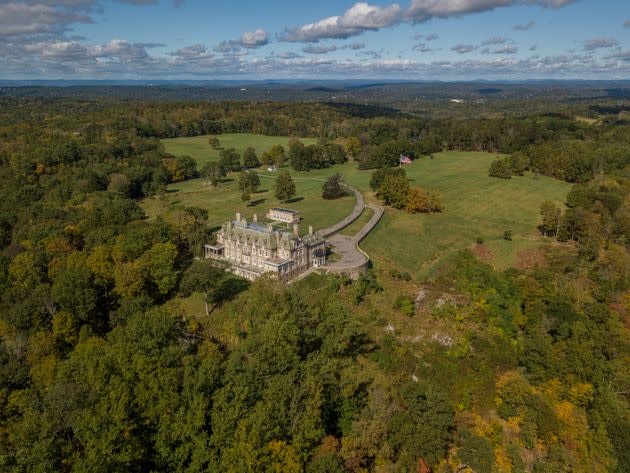NY's Attorney General Takes First Steps To Begin Seizing Donald Trump's Properties
- Oops!Something went wrong.Please try again later.
- Oops!Something went wrong.Please try again later.
- Oops!Something went wrong.Please try again later.
New York Attorney General Letitia James has filed a judgment with the Westchester County clerk’s office over a civil fraud ruling against former President Donald Trump, allowing her office to seize local properties from the purported billionaire and real estate developer if he cannot pay the $464 million penalty imposed by a court.
The attorney general filed the judgment March 6, according to the county clerk’s website. Filing the judgment with the county clerk’s office is the first step that the attorney general would take to impose liens and seize properties from a delinquent debtor. Trump properties in the suburban county, just north of New York City, include Trump National Golf Club Westchester and the 212-acre Seven Springs development.
On Feb. 16, a New York court found in a civil trial that Trump had committed financial fraud by falsifying the business records of his Trump Organization to obtain more favorable loan terms. Trump has since appealed the decision, but in the meantime he must pay bond on the penalty, either with his own cash or with a loan through a bond company.

Trump must come up with that money by Monday. So far, he has proved incapable of getting the cash together himself and failed to obtain a bond. He has asked the court to either waive or lower the bond amount he must pay, a request that the attorney general’s office has, in turn, asked the court to deny.
Attempts to obtain a bond proved “a practical impossibility” after 30 bond companies rejected Trump’s requests, the former president argued earlier this week in a filing seeking the penalty to be waived or lowered to $100 million. In a reply filed Wednesday, the attorney general’s office rejected Trump’s claims as rooted in false assumptions and based on “unreliable” testimony.
The attorney general’s filing in Westchester County is the first indication that her office is likely looking at seizing Trump properties outside of Manhattan. Some of Trump’s most famous and expensive properties are located in Manhattan, including his former residence Trump Tower and the skyscraper at 40 Wall Street. However, should James’ office be looking to seize any of these, the judgment does not need to be refiled in the countysince it was handed down in a Manhattan courtroom.
The value of some of Trump’s properties remains in dispute following his civil trial over fraudulently manipulating their value. Seven Springs, the largely undeveloped Westchester land that the attorney general could soon seize, played a starring role in the trial. Despite purchasing the site for $7.5 million in 1995, Trump told Deutsche Bank that it was worth $291 million in 2014, but then listed it as worth no more than $50 million on a federal ethics filing in 2018. At trial, Trump said he lowered the value because he “thought it was too high.”
